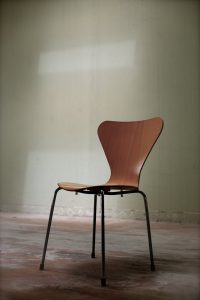A number of California employment lawsuits have been won in recent years by cashiers at retail locations seeking a place to sit at work. The door was first opened in 2010 when a pair of California Court of Appeal rulings allowed cashier plaintiffs to seek remedy when employers failed to provide reasonable seating.
In 2016, the California Supreme Court held in Kilby v. CVS Pharmacy Inc. that when tasks performed at a given location reasonably permit seating AND providing a seat wouldn’t interfere with the performance of any other tasks that might require standing, “a seat is called for.” Furthermore, if an employer argues no suitable seat is available, the burden is on the employer to prove unavailability.
As our Los Angeles labor and employment attorneys can explain, this provision is most often applied to cashiers, tellers and others who frequently work in stationary locations, but it’s not necessarily limited to the retail or banking sector or solely to cashiers.
This began with the 2011 Los Angeles employment lawsuit against Gap and Banana Republic alleging these clothing manufacturers (each owned by the same parent company) alleges that the clothing makers were required to provide employees at their stores with accommodations with adequate seating. What’s unique about it is that it asserts such accommodations should be made available not just to cashiers, but to all employees “if the nature of their work allows.”
Repeatedly citing Wage Order 7-2001 Section 14, plaintiffs assert that when the nature of the work reasonably allows for the use of a seat where the work would otherwise be done standing, seats should be given close to the work area so employees have them available for use, so long as it doesn’t interfere with their work tasks.
Although most of these cases have dealt with cashiers, our Los Angeles labor and employment attorneys can explain that technically the wage order pertains the “mercantile industry” which is defined broadly to encompass any company that exists/operates to sell/distribute/purchase/rent commodities or goods – retail or wholesale. All the previous cases pertaining to cashiers assert that the nature of the work of a cashier clearly makes it reasonable for employers to provide seats. The current case does the same, except takes it a step further to indicates it’s not just cashiers, but any other employer who might want to sit while not actively doing other things that require standing/walking/bending/stooping, etc. So it’s not just employees standing at the register.
This was the same language the California Supreme Court used when issuing its decision in Kilby.
So what are the responsibilities of the employers who have workers for whom this might apply? They need to make careful assessments of the nature of each employees’s job-related tasks to ascertain whether the nature of that work might reasonably allow the worker to be given a seat. If not, they should be prepared to make a case for why a seat can’t be given while the worker waits for some type of active customer engagement.
Beyond that, employers should really consider just making seats available upon worker request. If seats are made available to workers near work stations (i.e,. break rooms, in common areas) in a way that doesn’t interfere with regular job tasks, employees will be less likely to assert the employer wasn’t being reasonable/considering the nature of the work and just arbitrarily denying everyone.
Contact the employment attorneys at Nassiri Law Group, practicing in Orange County, Riverside and Los Angeles. Call 949.375.4734.
Additional Resources:
Kilby v. CVS Pharmacy Inc., 2016, California Supreme Court
More Blog Entries:
California Courts Nix Non-Solicitation Clauses in Employment Agreements, March 6, 2019, Los Angeles Labor and Employment Attorney Blog
 Orange County Employment Lawyers Blog
Orange County Employment Lawyers Blog

